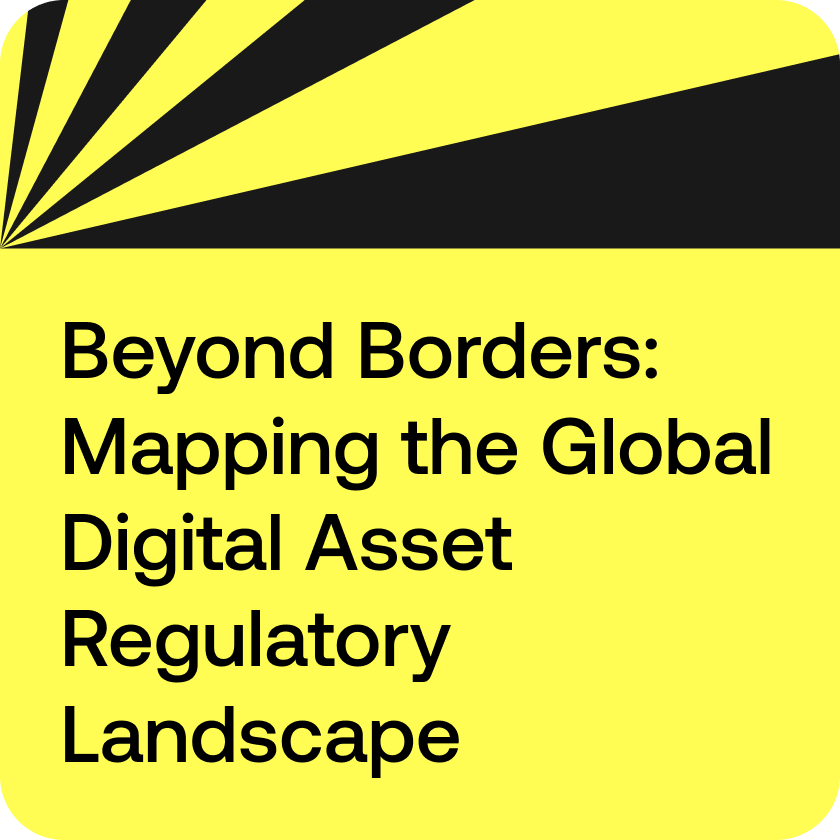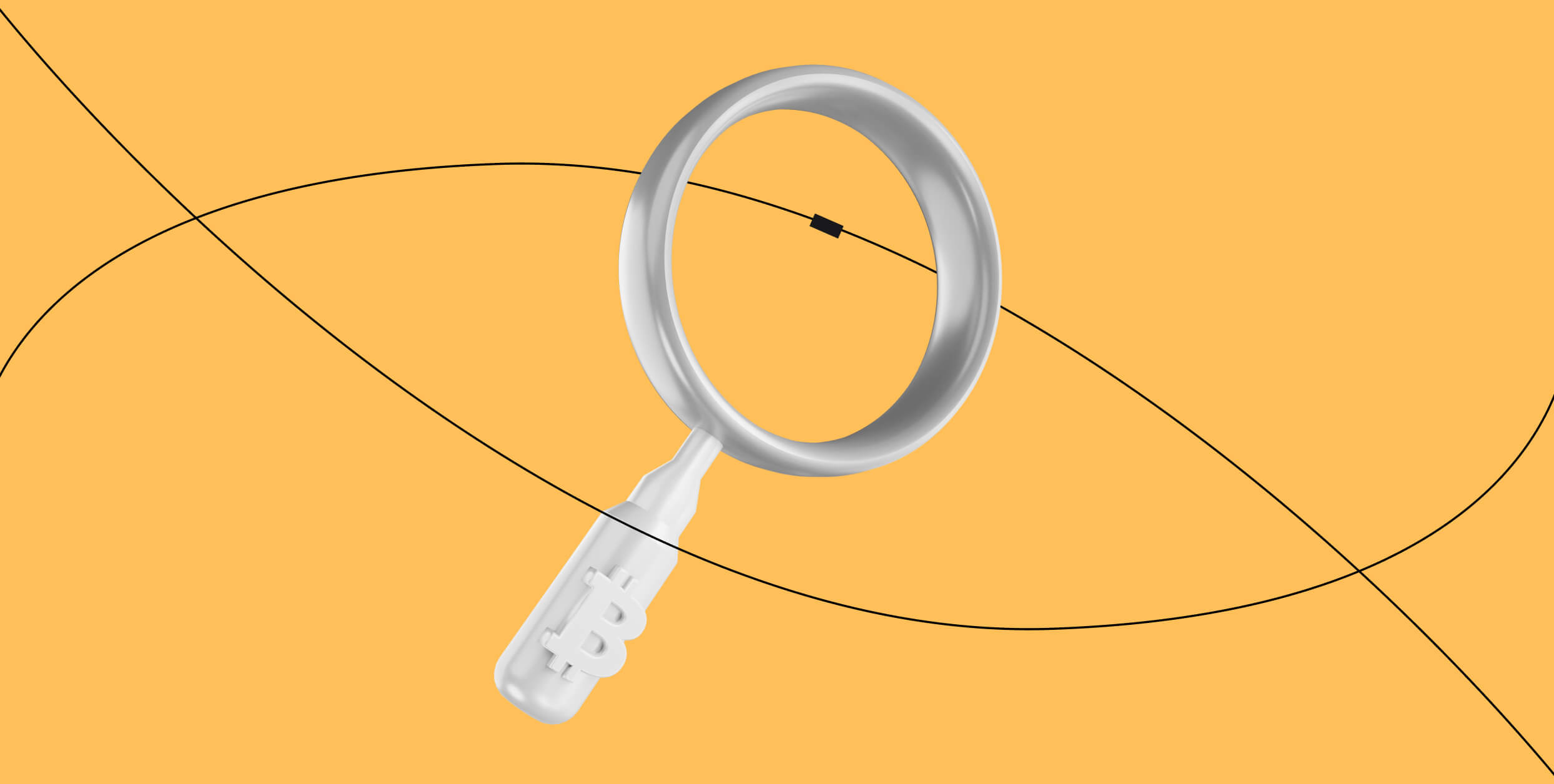A Conversation on The Regulation of Decentralized Finance

In an exclusive interview for The Fintech Times, Crystal’s CEO, Marina Khaustova reveals how decentralized finance should be regulated. Read the full interview here!
FT: Why don’t you tell us a bit about who you are and a bit about Crystal Blockchain?
MK: I am Marina Khaustova, the Chief Executive Officer of Crystal Blockchain. Crystal Blockchain is a company that develops blockchain analytics for companies that deal with digital assets. We provide compliance and investigative solutions for financial institutions, virtual asset service providers, and security firms.
FT: It seems like you’ll have a lot of people to speak to at this event and a lot of insight into the crypto industry. There are going to be a lot of changes to the regulatory space around crypto. The whole crypto industry has this wild west image of being like a free fall in certain aspects.
But you have a much more on-the-ground view of the situation. What do you see as regulatory trends in the crypto space that are going to be big this year?
MK: Right now, the cryptocurrency space is much better regulated than five or seven years ago, compared to 2015. The progress is fascinating.
Of course, regulators feel the need to protect the customers and investors from potential risks associated with the digital asset space; because of the bad actors and illicit behavior in this space.
Some people even try to avoid sanctions with the use of cryptocurrencies. However, the benefits of cryptocurrencies and the blockchain have already been highlighted by countries, certain governments, and many large financial institutions.
Right now, the regulators are facing the need to act fast and to make crucial decisions. They are currently in the space of how decentralized finance regulation – how noncustodial and custodial wallets should be treated and how profile risk scores should be applied.
Also, sanctions and sanctioned assets can be traced even if they are transforming into cryptocurrencies. Those are the hot topics for this year. And yeah, this year changes a lot, but we’ll see this in further years.
FT: In anti-money laundering, what is the best way for crypto businesses to stay compliant?
MK: What the FATF tried to do by issuing their guidance on cryptocurrency several years ago, updating it every year; they tried to normalize the approach that companies may be taking towards cryptocurrencies and traditional assets.
And, of course, the technology we are dealing with in the form of cryptocurrency is far more developed and requires separate and narrow instruments to be utilized. However, the rules are the same.
The ML policies designed within the company should also be flexible enough to allow compliance officers to learn about new developments and assess what’s risky and what’s not without suffocating the business.
That requires a lot of work on educating again all the compliance officers in the world about giving them all the instruments that can serve them on an ongoing basis and letting them be focused on this industry. So that’s quite a task and a challenge.
Watch the Money 20/20 inteview with The Fintech Times here
FT: Crystal Blockchain works with blockchain analytics, providing all of this data and information. How is that applicable to AML and staying compliant and being aware of financial crime?
MK: Blockchain analytics lets you understand how digital and virtual assets change their owners. So we can look back and understand where this particular fraction of bitcoin came from, when it was mined, and what kind of owners it changed on its path.
That functionality makes compliance officers aware of the risks associated with the funds that they are about to accept or even predict certain things that may be happening in the future.
So I would say that introducing the blockchain aspect to ML ramped up the stakes in the ML and react the space significantly because now you have so much data you can work with. With the tools available, you can make conclusions and automated ongoing monitoring much more manageable.
FT: Did you see the appetite for analytical data become more intense?
MK: Definitely! Not only from the compliance space. We see that there are more and more companies operating and dealing in the present in blockchain space, from the investment perspective or again, not only financial institutions, they all understand that they may find a lot of insights in the blockchain data. It’s very raw.
If you look at the blockchain ledger, of course, you will find all the transactions there, you will understand when they were happening, but it doesn’t give you much insight.
And our goal is to provide and arm our customers with these actionable insights so they can make decisions about their business moving forward. That may be applied to compliance but also to any other area.
FT: Blockchain analytics is a very useful resource. How do sanctions work within the crypto space?
MK: Each country has its sanction lists, and of course, depending on where our customer is located, they are also following specific sanction lists.
Recently, many sanction lists were updated with bullets belonging to particular people or organizations. For example, our faculty is updated with this information frequently because of the recent Russian-Ukrainian war.
Many people try to avoid appearing on sanctioned lists and think they might use cryptocurrency because, in their opinion, cryptocurrency allows you to be unidentified. Like you don’t need to pass any additional verification to create a new wallet.
The general assumption is wrong because we can understand what type of activity is happening behind the wallet, what kind of counterparties this particular world is interacting with.
Therefore, we may understand a lot about this particular wallet’s owner. That allows us to track sanctioned assets or assets belonging to any illicit actors across the chain and then warn industry members about these funds heading their way promptly because it’s also important to react fast.
You may be transferring funds across the blockchain super rapidly and if you don’t move fast, these funds may disappear or move elsewhere, and you won’t be able to make any additional changes. Having the right tools that are updated regularly and in time, can help track against the movement of the funds across the chain is critical.
FT: In terms of using Crystal Blockchain services and blockchain analytics, how can your services help mitigate the risk and the cost of managing the risk? What’s your view on that?
MK: First of all, we introduce a lot of automation and a lot of algorithms that lighten up the work of the compliance officer to make it much easier, you don’t need to spend a lot of time to understand what’s happening.
Our solution automatically watches all the transactions that are coming to your wallet and screens them on the go, in the real time, so from time to time you just log into the system.
You see what particular transactions have been flagged for your additional research, and you may immediately see all the information related to these transactions in the system. That allows you to react and to perform certain actions immediately.
Moreover, we are very much focused on delivering to teams of compliance officers working with each other because as we develop further, compliance teams grow bigger and bigger and consist of different roles.
It’s also important to give a solution that allows them to work on the same cases, to work on the multi-jurisdictional cases, to change certain roles within this ecosystem of our solutions and to distribute the work correctly.
So having combined all of this, we are seeing how the number of hours that compliance officers were spending on monitoring transactions is declining, so we are freeing them for some other important tasks.
FT: As the threat increases, you’ve got to work smarter. Our final question for you Marina. You’ve just arrived at Money2020 you’ve got a very busy schedule ahead of you and beyond this event, we know you must be very busy. What’s next for Crystal Blockchain?
MK: We are growing very fast at this moment. We are an Amsterdam-based company by our origins. Still, we also have our offices in London. Our development team is mostly from Ukraine, so we are now expanding our operations and getting more people hired in the United States.
We have huge plans for this particular market. We will also be at money 2020 in Las Vegas in the upcoming autumn. This poses additional challenges for us because we see US-based companies following local regulations very strictly and having additional requirements for our tool which we are delivering to them already.
Still, it’s a very important goal for us until the end of the year.
Watch the full interview on YouTube
About Crystal:
Crystal Blockchain continues to expand and offers industry best-in-class analytics solutions. Crystal analyzes and monitors 98% of blockchain transactions up to 100,000 hops. Our real-time data brings clarity and accuracy to aid in mitigating risk and compliant-driven decisions.
We rank risks and notify you of potentially irregular activities. We assist with investigations, audits, and research reports. We observe changes in regional and global regulations to ensure compliance.
We support transparency in transactions as we work for a better and safer blockchain future.
Get in touch at [email protected]



